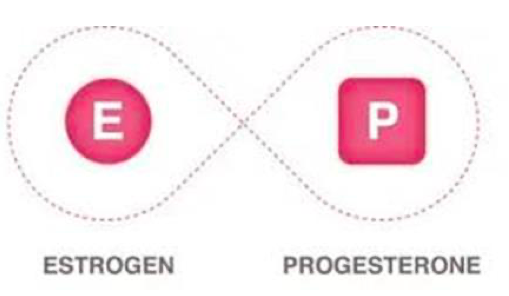Nearly 1 in 8 women will develop some form of breast cancer in their lifetime. Those breastfeeding or pumping may find themselves more aware of their breast health at this point due to the rapid changes that occur while lactating.
As cancer care nurses it is important to be aware of the facts relating to breastfeeding and breast cancer. When it comes to reproductive risk factors breastfeeding has shown to reduce a women’s risk. This can be due in part that while breastfeeding a women may experience a delay in her menstrual cycles which in turn decreases her lifetime exposure to oestrogen. Hormones such as oestrogen have been shown to increase the risk of breast cancer. Hormone receptors are proteins found on breast cells. These proteins pick up the oestrogen or progesterone signals which promote cell growth, including cancer cell growth if they contain the receptors for these hormones. Breast cancer cells which have receptors for either are considered hormone receptor-positive (HR+). Breast tumours may be positive for oestrogen receptors (ER+), progesterone receptors (PR+) or both (ER/PR+). These receptors account for about 80% of HR+ breast cancers.
If a cancer cell is ER+, it means it can receive signals from oestrogen instructing the cells to grow. If a cancer cell is PR+, these signals can come from the progesterone hormone. Knowing if the tumour needs oestrogen and or progesterone to grow makes it easier to treat the cancer. Breast cancer that is HER 2+ may respond to targeted therapy. Those with triple negative breast cancer means their tissue has tested negative for hormone receptors and HER 2.
Many therapies used to treat breast cancer including hormones such as Tamoxifen and Letrozole can be passed from the nursing mother to the baby therefore it is not recommended to breastfeed while receiving active systemic treatment. It is important to be aware that hormone therapy is also based upon pre/post-menopausal status. For example, Tamoxifen is given to pre- and post-menopausal women where as Letrozole, an aromatase inhibitor, is used in post-menopausal women. However, some premenopausal women may take an aromatase inhibitor when combined with ovarian suppression such as goserelin.

It may still be possible to breastfeed after breast surgery. Breastfeeding from a breast which has been exposed to radiation can cause an infection (mastitis) which can be difficult to treat. Breastfeeding from the non-treated breast may be possible if the patient is not receiving any other drug treatments.
More recent studies have also shown a reduced risk for ovarian cancer as when breastfeeding a woman has less cycles of ovulation. This is thought to reduce the risk for potential cellular and genetic mistakes that may lead to ovarian cancer.
Useful Resources
https://www.wcrf.org/diet-activity-and-cancer/risk-factors/lactation-breastfeeding-and-cancer- risk/
https://www.cancerresearchuk.org/about-cancer/breast-cancer/risks-causes/protective- factors
https://www.cancer.ie/cancer-information-and-support/cancer-types/breast- cancer/prevention-and-risk
https://cancer-code-europe.iarc.fr/index.php/en/ecac-12-ways/breastfeeding
Remember EONS is always here to help